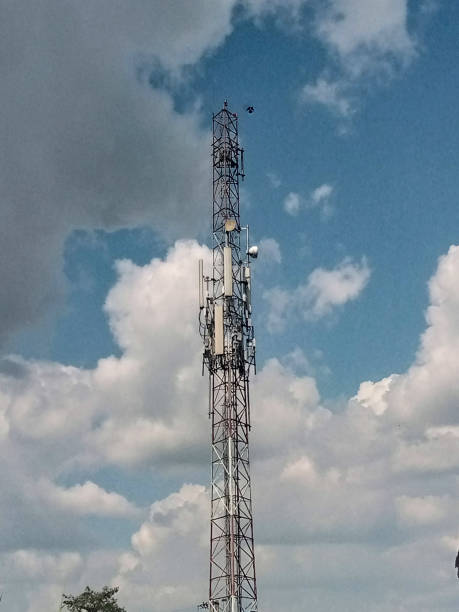
The Nigerian telecom sector has recorded cash importation or foreign direct investment (FDI) of $2.51 billion, according to Central Bank of Nigeria (CBN) data supplied to the Nigerian Communications Commission (NCC).
According to the record, capital inflow or FDI into the Nigerian telecoms industry in 2020 was approximately $417.48 million as against $942. 86 million in 2019.
This translates to a decline of 55.7 per cent in capital importation year-on-year. The decline in capital importation was largely attributed by the operators to the outbreak of the COVID-19 pandemic that distorted global businesses and impacted businesses negatively.
FDI in 2021 was approximately $753.04 million while in 2022, it was approximately $399.91 million.
The document also showed that as at December, 2022 total active voice subscriptions for the entire market segments stood at $222.57 million as against $195.46 million recorded as at December, 2021. This indicates an increase of 13.86 per cent in 2022.
Teledensity was 116.60 per cent in 2022 as against 102.40 per cent recorded in 2021, which indicates an increase of 13.86 per cent in Teledensity as at December 2022.
The increase in operators’ subscriber base was attributed majorly to the effect of the directive from NCC in April 2021 to all global system of mobile communication (GSM) operators lifting the ban on the sale and registration of new subscriber identity modules (SIMs), SIM swaps and all porting activities following the conclusion of the Commissions nationwide audit of Subscriber Registration Database.
The objective of the audit exercise, according to the document, was to verify and ensure compliance by Mobile Network Operators (MNOs) with the set quality standards and requirements of SIM Card Registration as issued by the Federal Ministry of Communications and Digital Economy and the NCC.
In July, the NCC had put total investment profile in the nation’s telecommunications sector, comprising FDI and local investment at $75.6 billion as of 2021.
According to the Commission, in 2018, investment profile in the sector stood at $68 billion. This increased to $70.5 billion in 2019 and $72 billion in 2020. At the end of 2021, the figure rose to $75,560,563,417.79 ($75.6 billion). The latest figure is the current official investment profile computed in the industry up from the initial $70 billion investment in the last few years.
Investment in the telecommunications sector is computed from two sources: the Central Bank of Nigeria (CBN), and the financial data obtained from MNOs by the Commission.
While the CBN collects and calculates an element of the telecoms sector to include FDI, portfolio and others, the Commission collects investment figures from telecom licensees described as domestic investment arising from capital expenditure (capex) which forms part of the total investment in the industry.
The NCC said the telecom sector recorded tremendous growth from an initial investment profile of $500 million as at 2001 when the sector was fully liberalised.
The telecom sector has continued to be a major contributor to Nigeria’s economy through an impressive sectoral contribution to the nation’s Gross Domestic Product (GDP) quarterly, up from about 8.5 per cent in the third quarter of 2015, to N10.126 trillion in 2022 alone.
According to National Bureau of Statistics (NBS) data, the telecoms sector contributed N10.126 trillion as an aggregate quarterly contribution to GDP in 2022.
In Q1, the sector contributed 12.94 per cent equivalent to N2.246 trillion while in Q2, it witnessed an all-time high GDP contribution by the telecom sector to the nation’s economy, standing at 15 per cent and valued at N2.593 trillion. The sector’s contribution to GDP in Q3 was 12.85 per cent and in Q4, it grew to 13.55 per cent, which are valued at N2.436 trillion and N2.851 trillion respectively.
The growth trajectory continued this year as the telecommunications and Information Services sector in Nigeria delivered a handsome N2. 508 trillion in terms of financial value contribution to the nation’s gross domestic product, GDP, representing 14.13per cent in Q1, 2023, NCC explained.
Telecoms contribution to national GDP has continued to grow significantly, according to available data from NBS.
From 8.50 per cent in 2015, it grew to 9.13 per cent in 2016 and to 8.66 per cent in 2017. In Q4 of 2018, telecoms contributed 9.85 per cent to national GDP while it added 10.60 per cent in the fourth quarter of 2019.
Also in the Q2 of 2010, it added 14.30 per cent to GDP; 14.42 per cent in Q2 of 2021. The highest quarterly contribution to GDP by the sector to the economy was 15 per cent in Q2 of 2022.
As of May, 2023, active voice subscriptions reached 221.3 million, equivalent to 115.91 per cent teledensity, while internet subscriptions rose to 159.6 million.
Broadband subscriptions on Third Generation (3G) and Fourth Generation (4G) networks increased to 92.2 million, representing a 48.28 per cent broadband penetration in the country.
Also, following the issuance of 3.5GHz spectrum licences for the deployment of 5G networks in Nigeria, marked by ultra-high speed internet, low latency and high capacity, and the subsequent commercial launch by two of the three licence holders, 5G subscriptions have grown.

